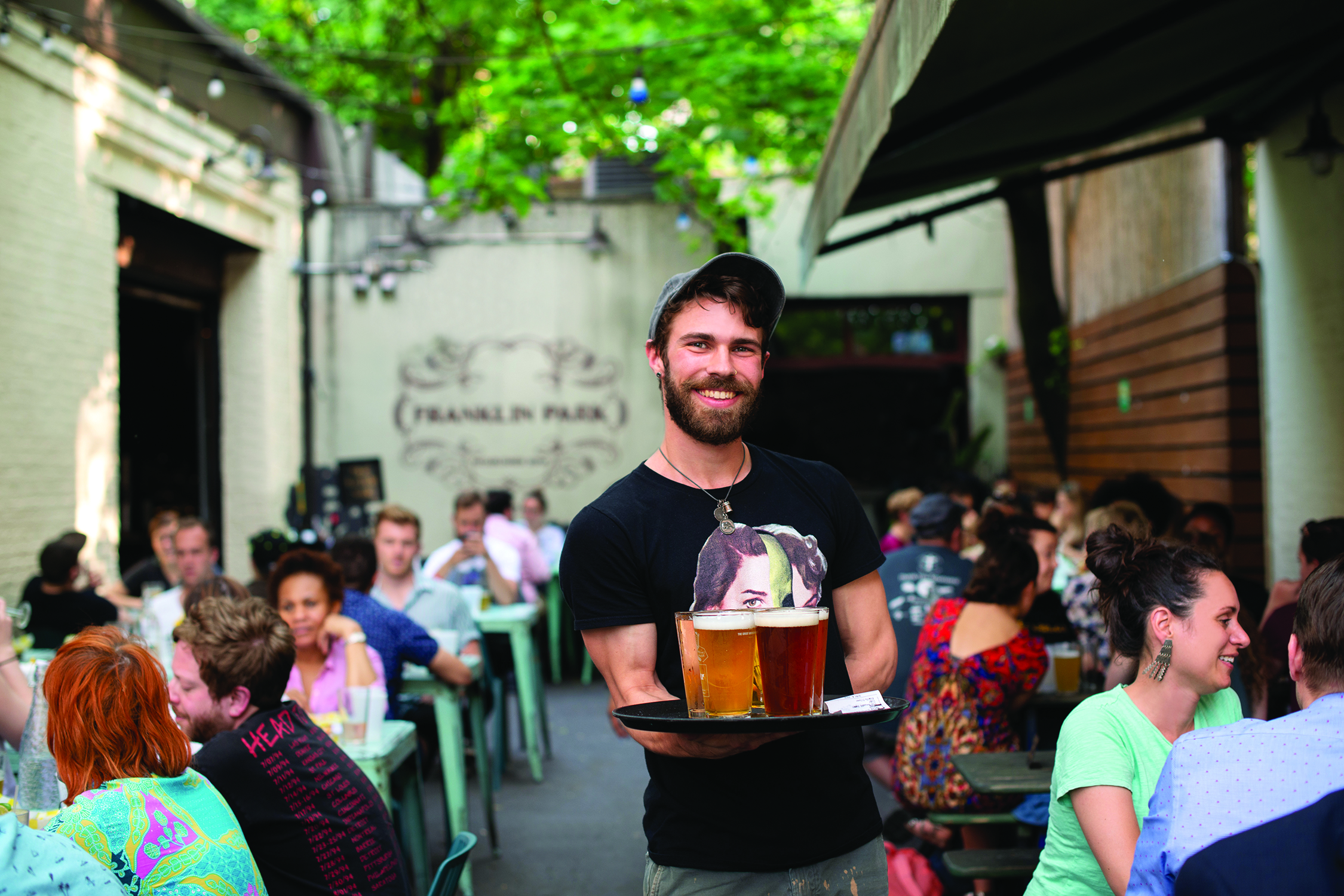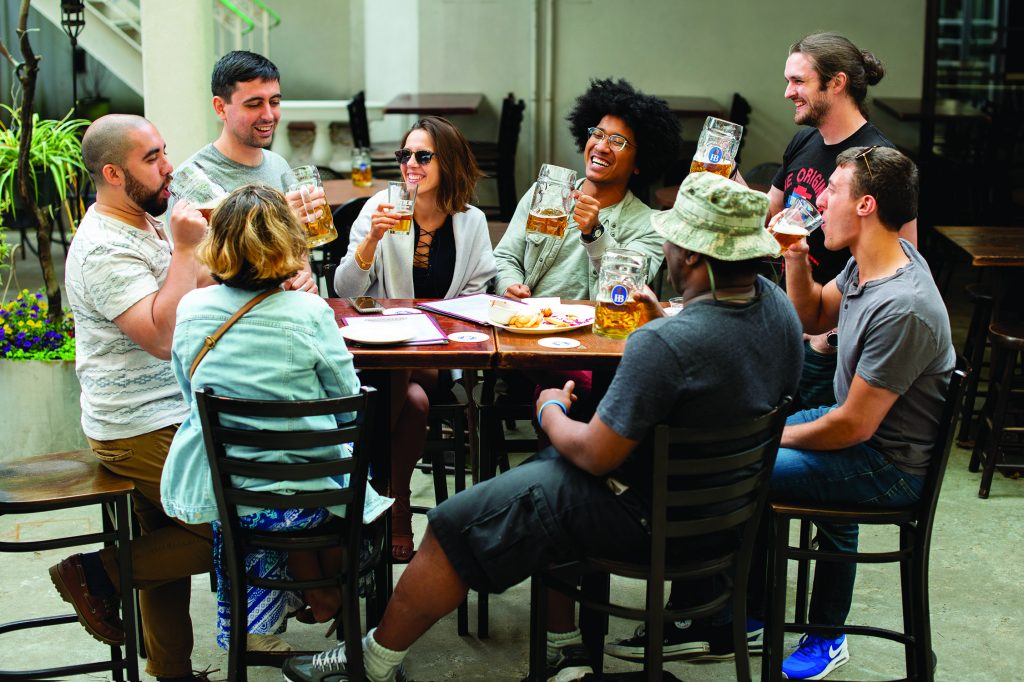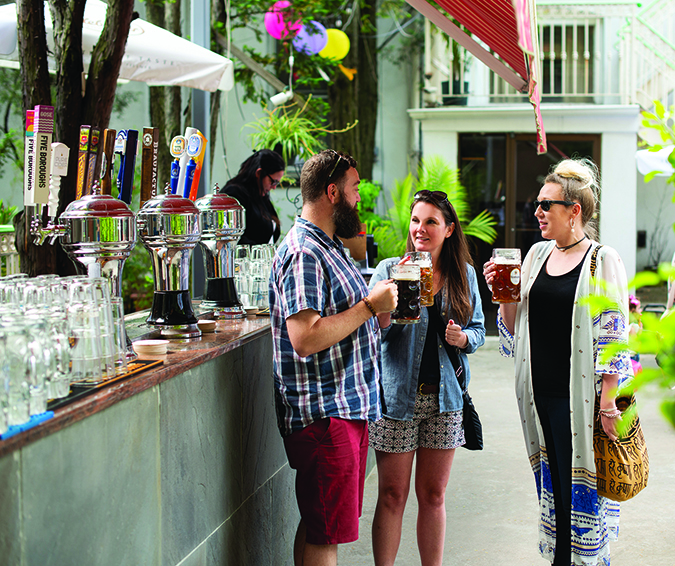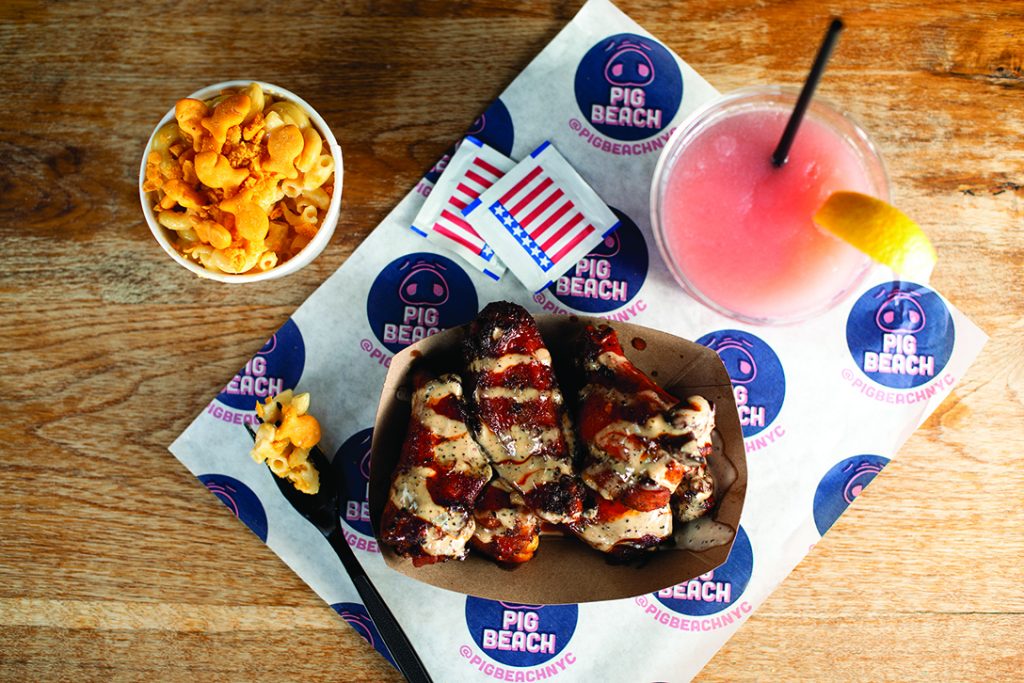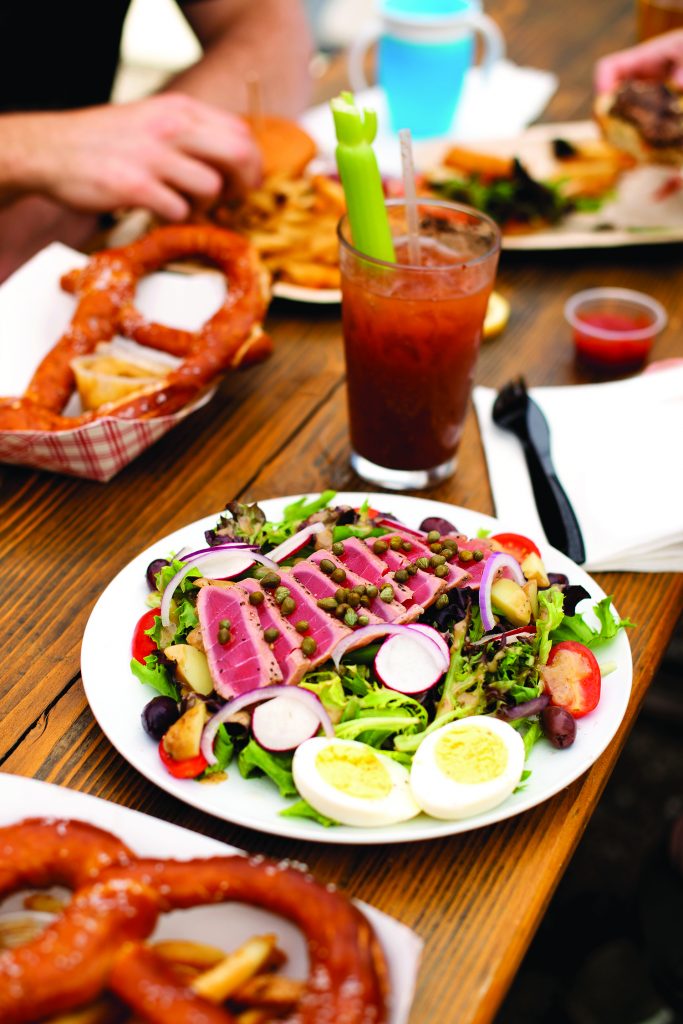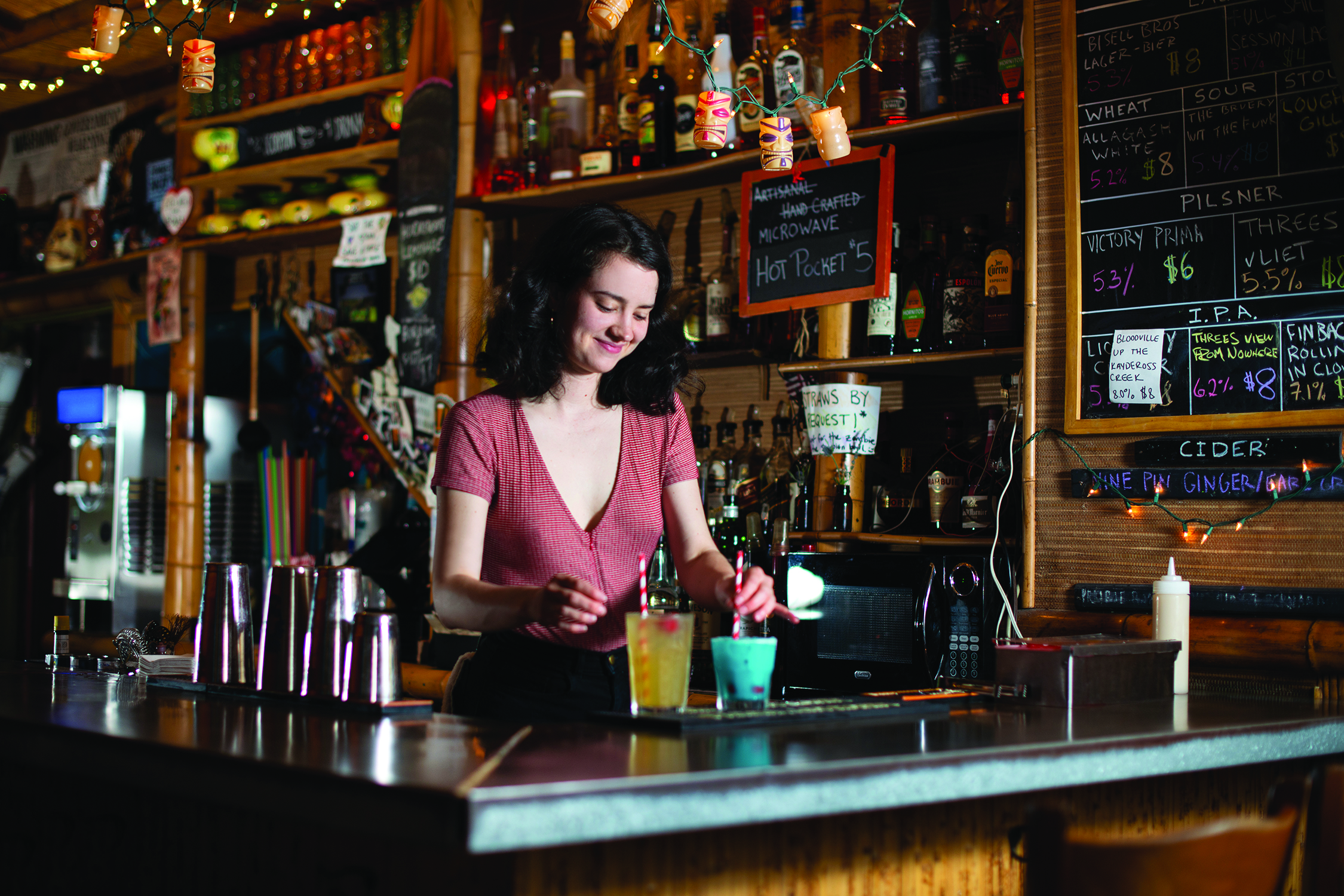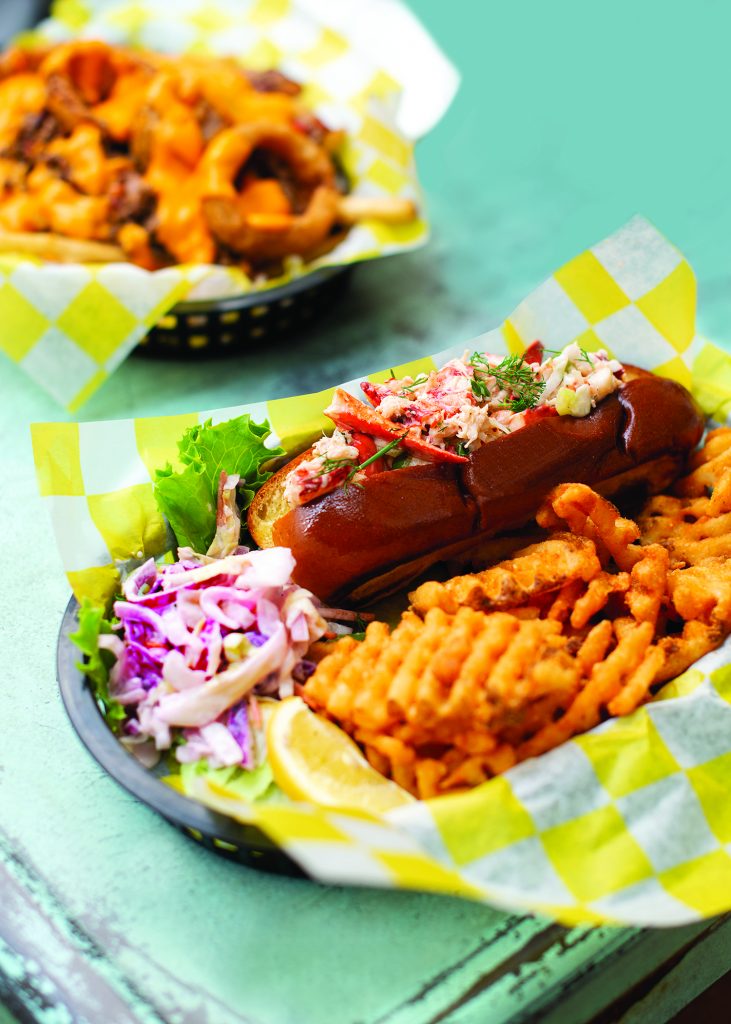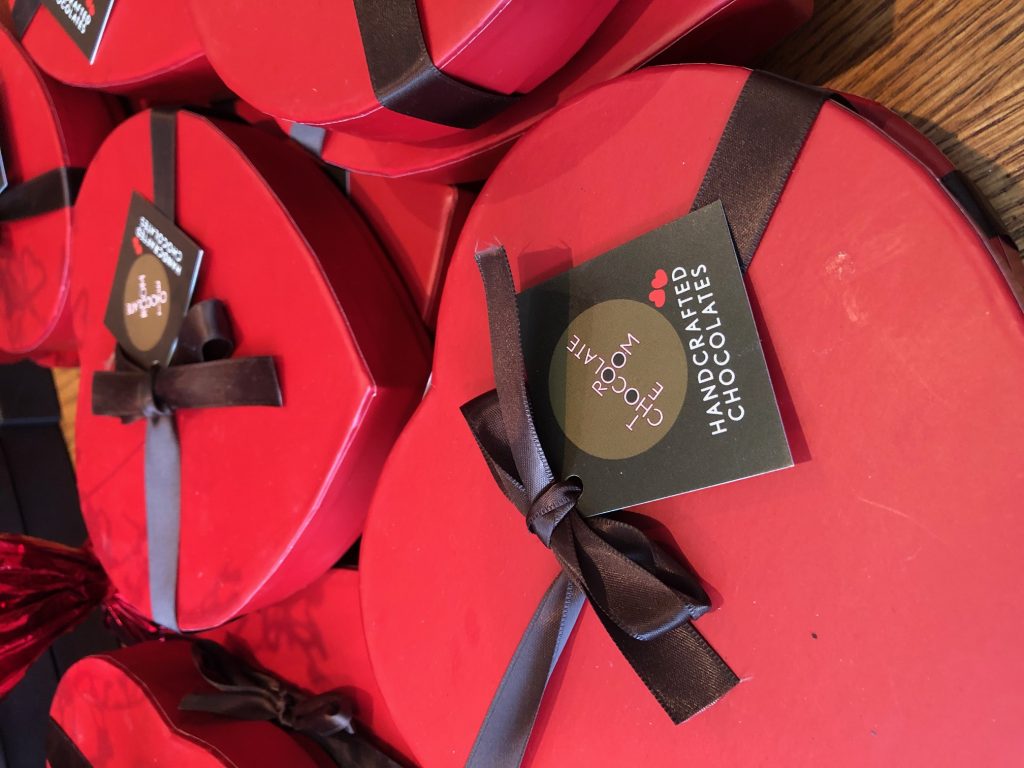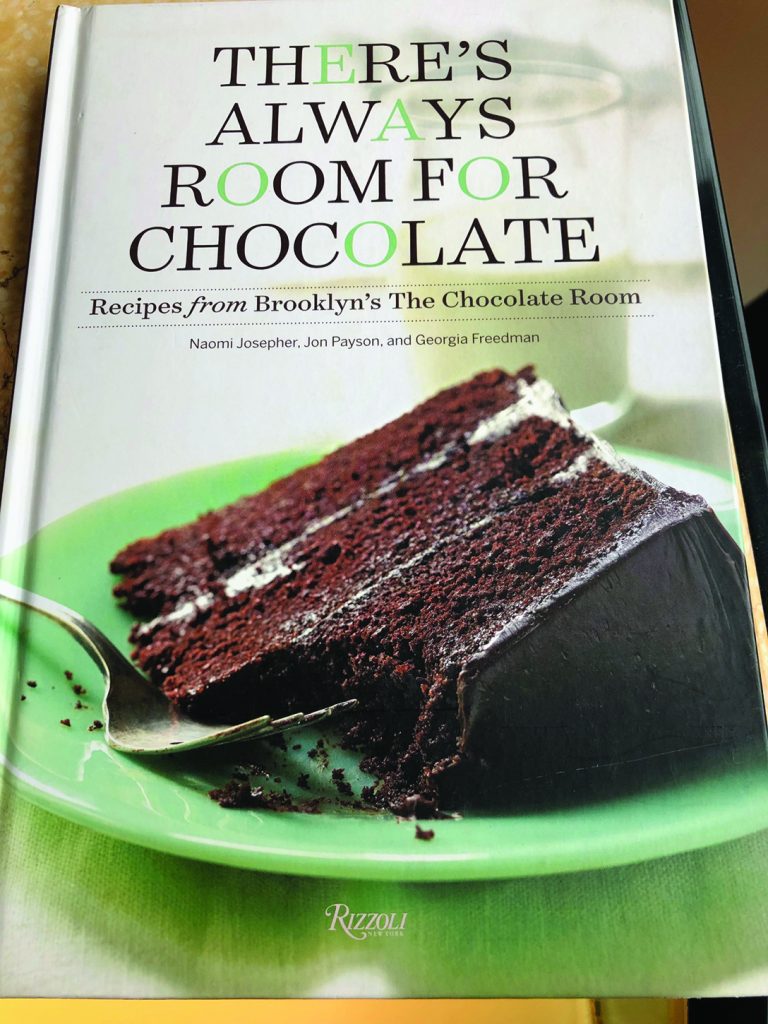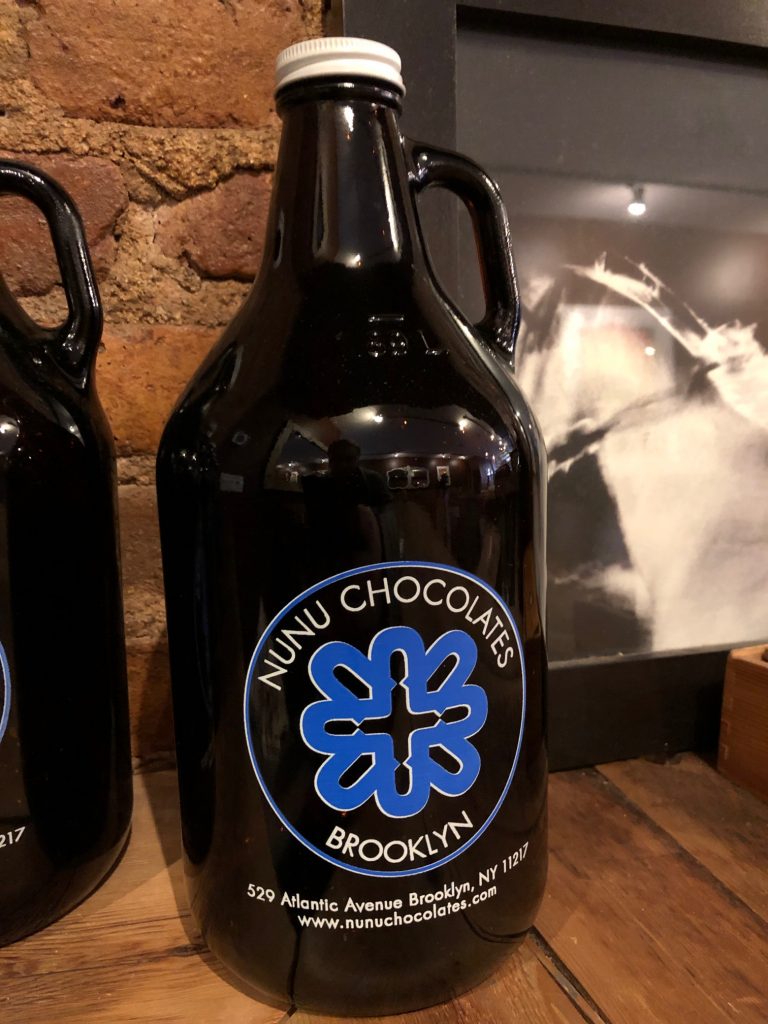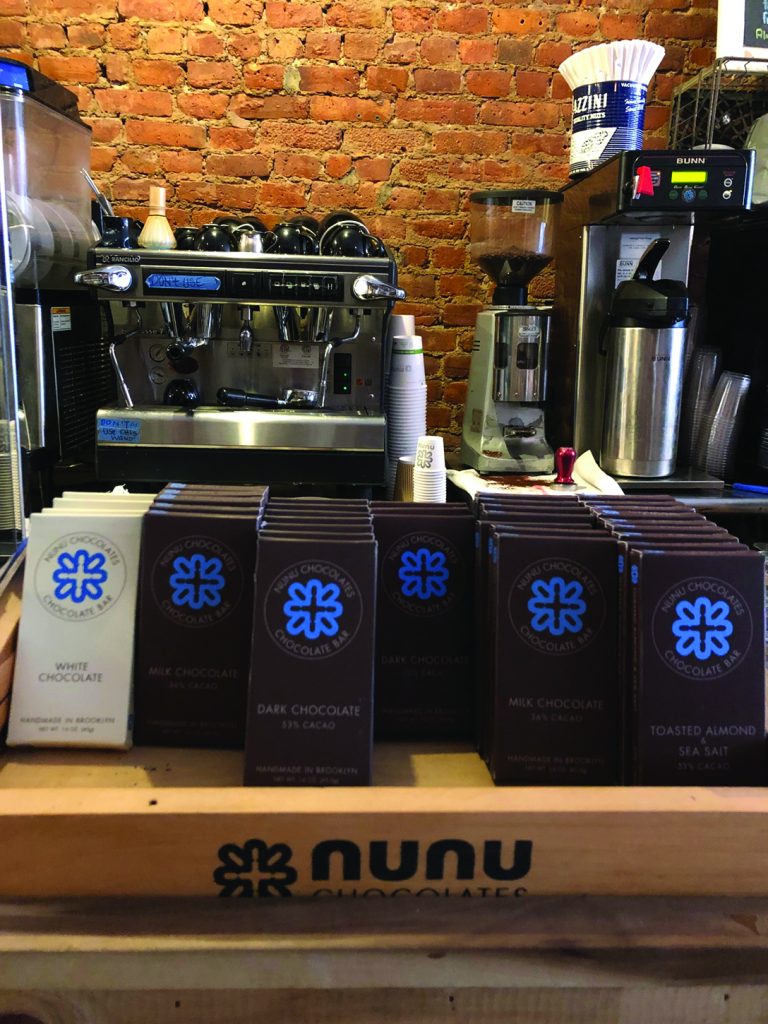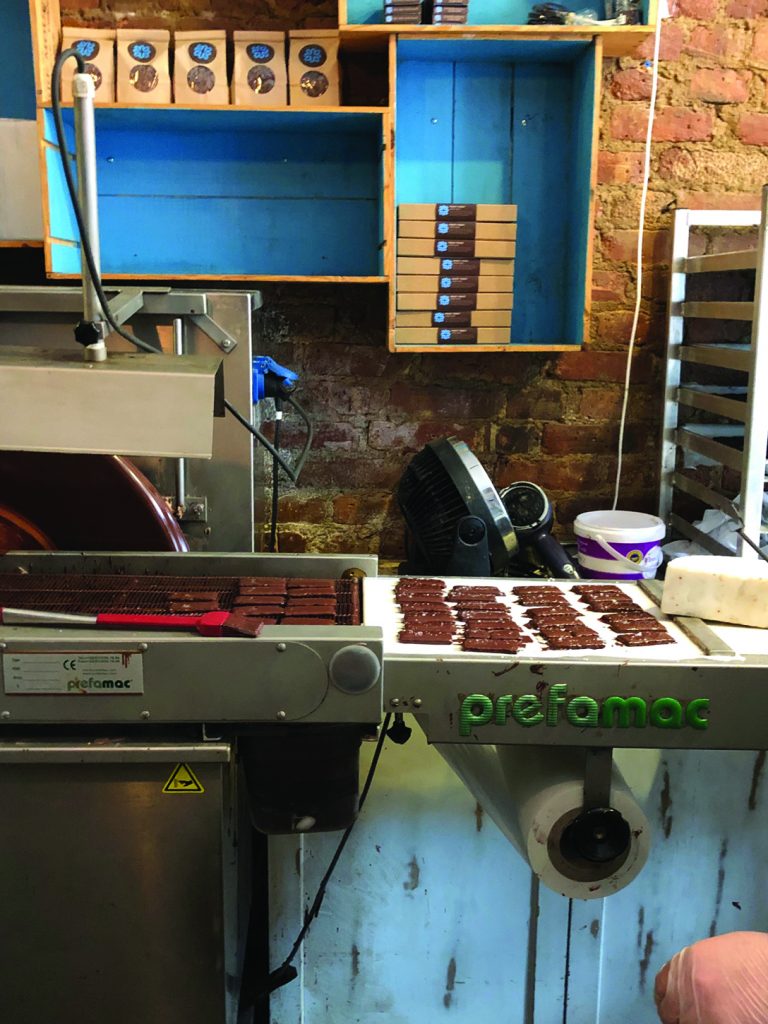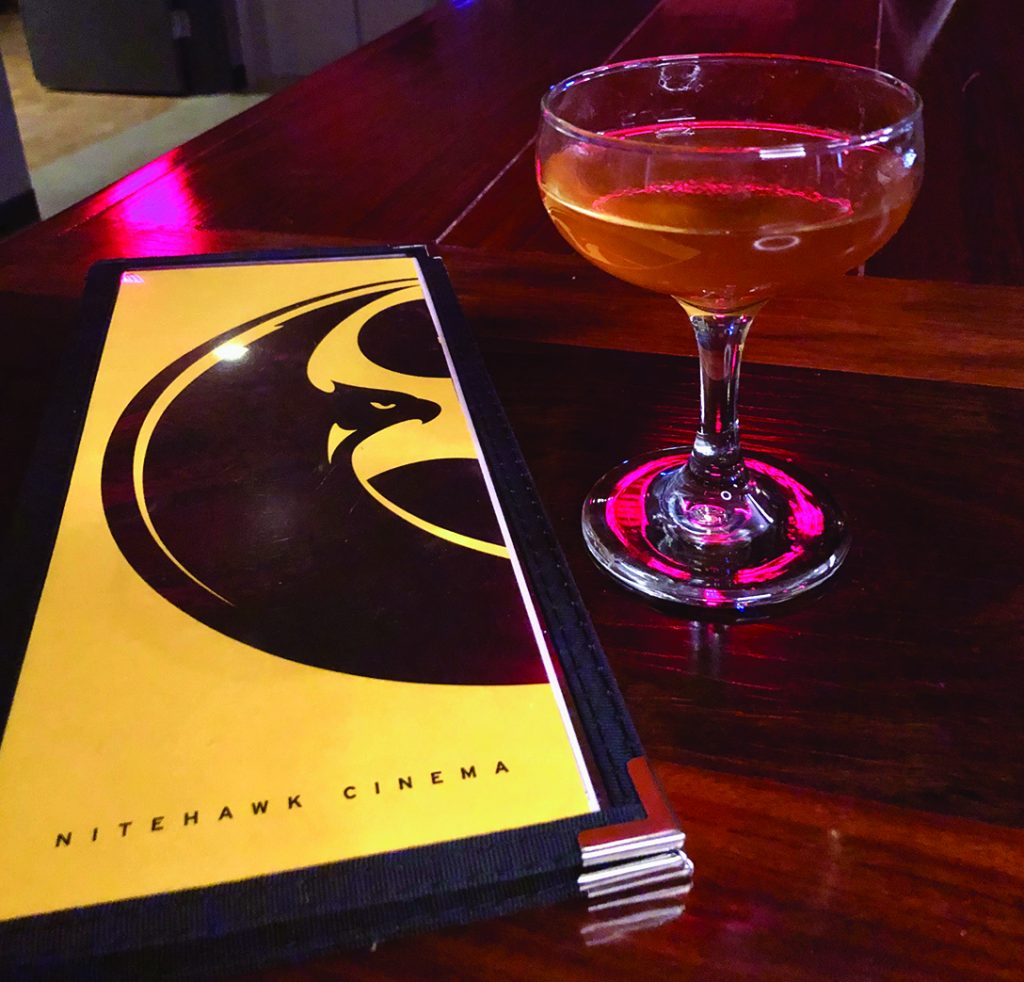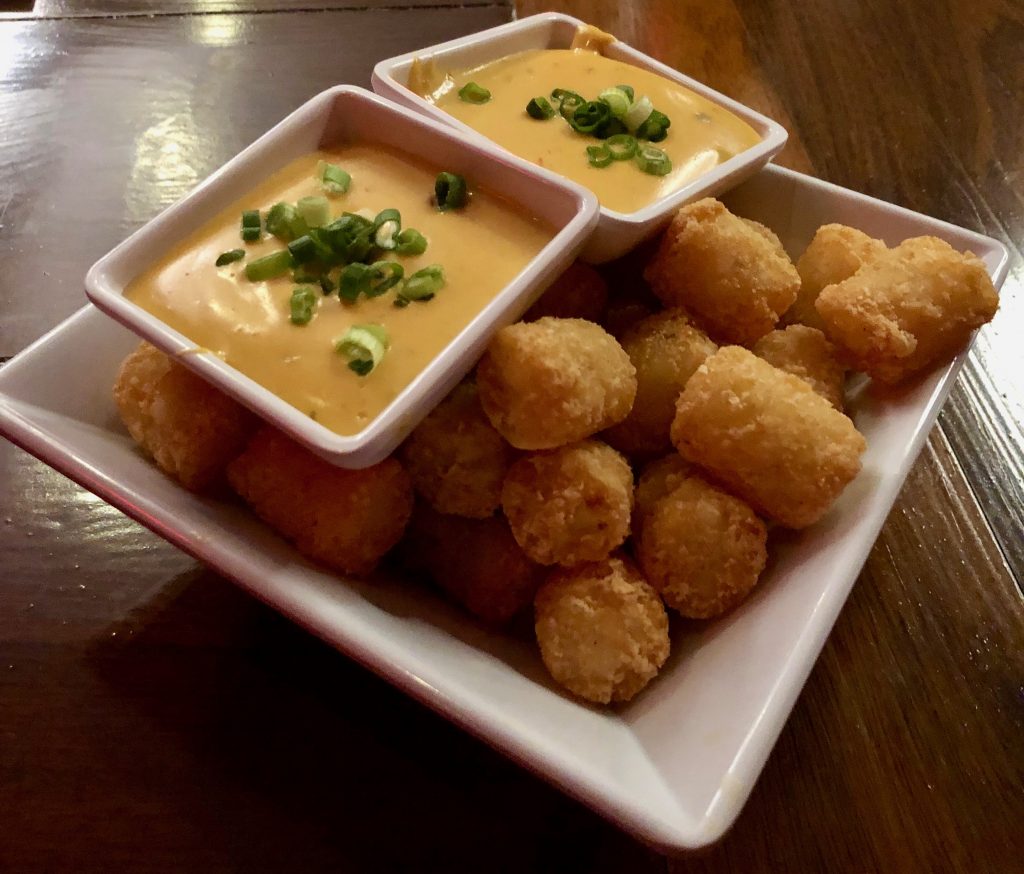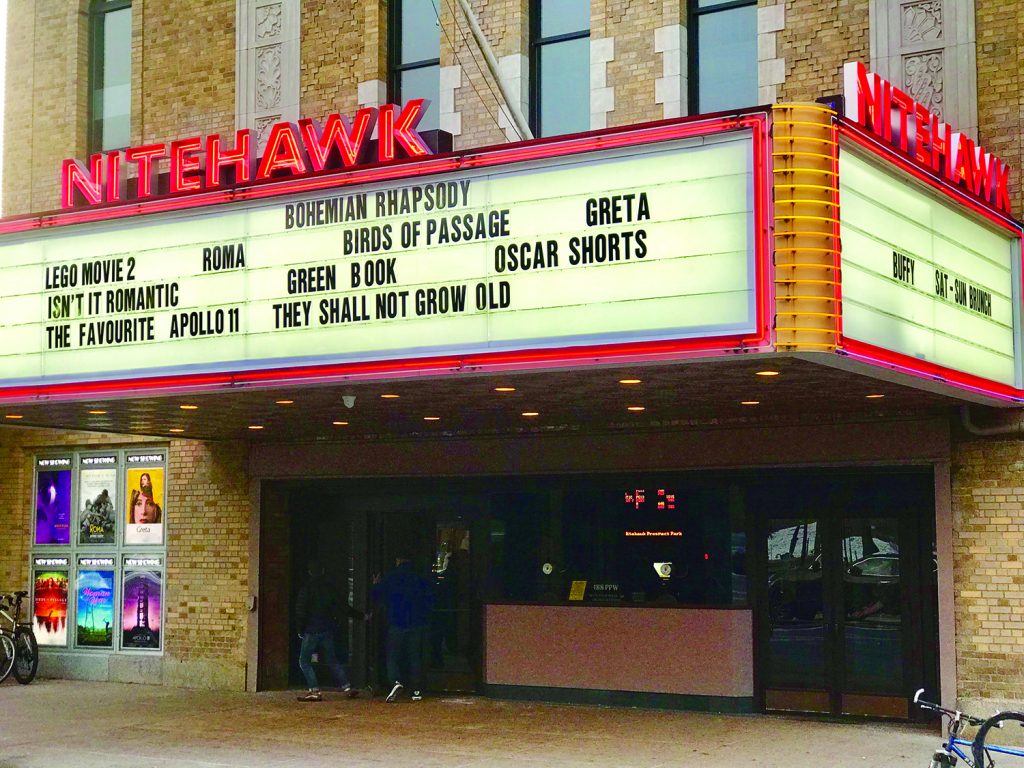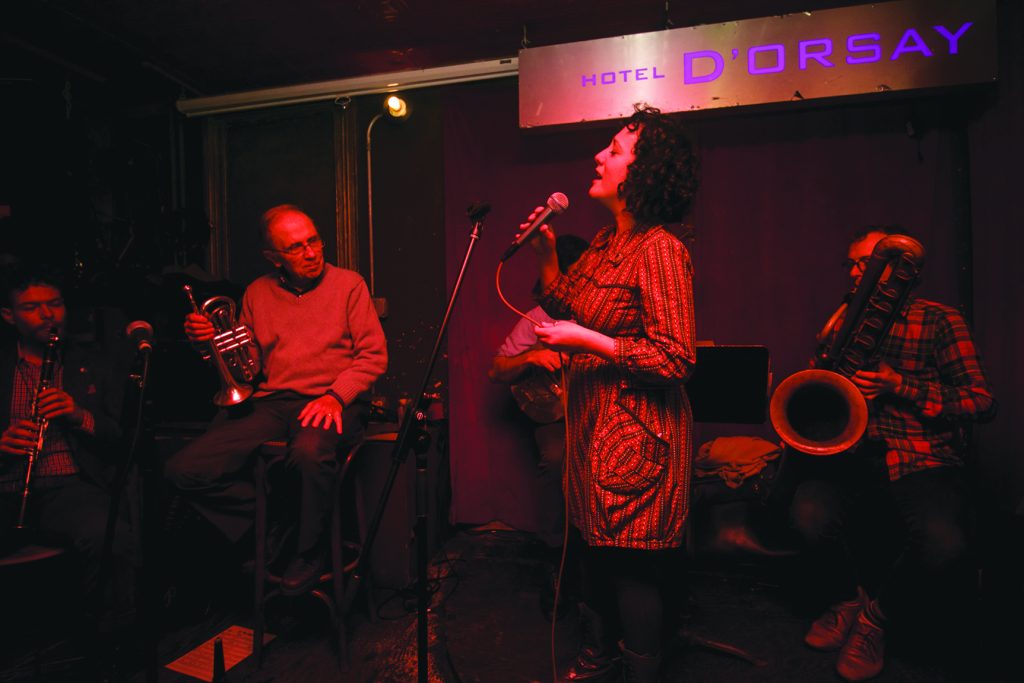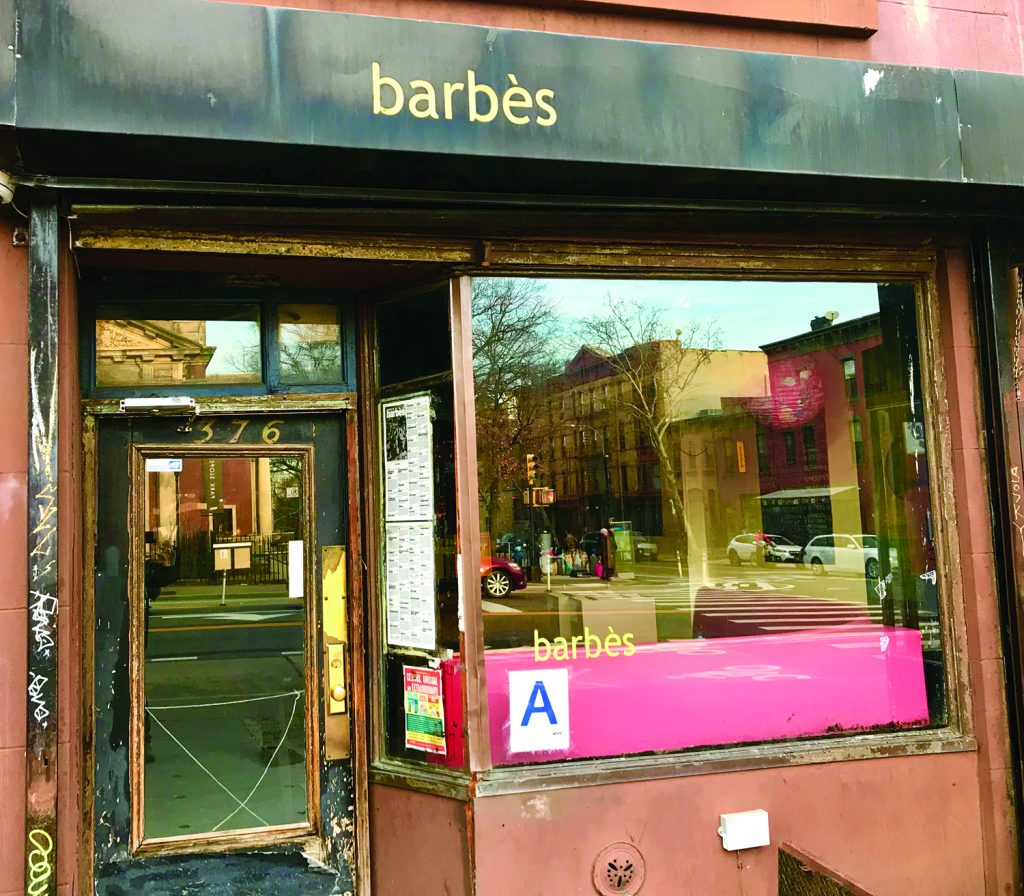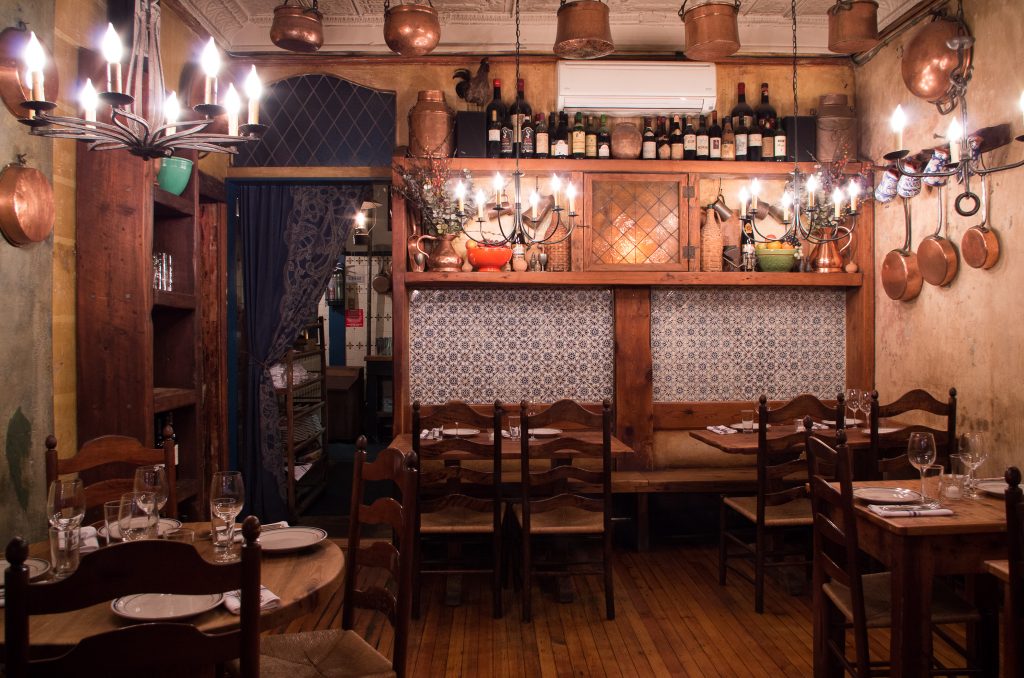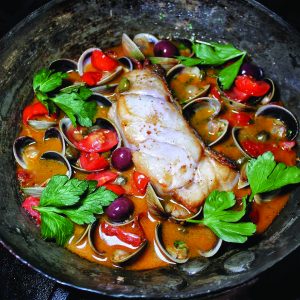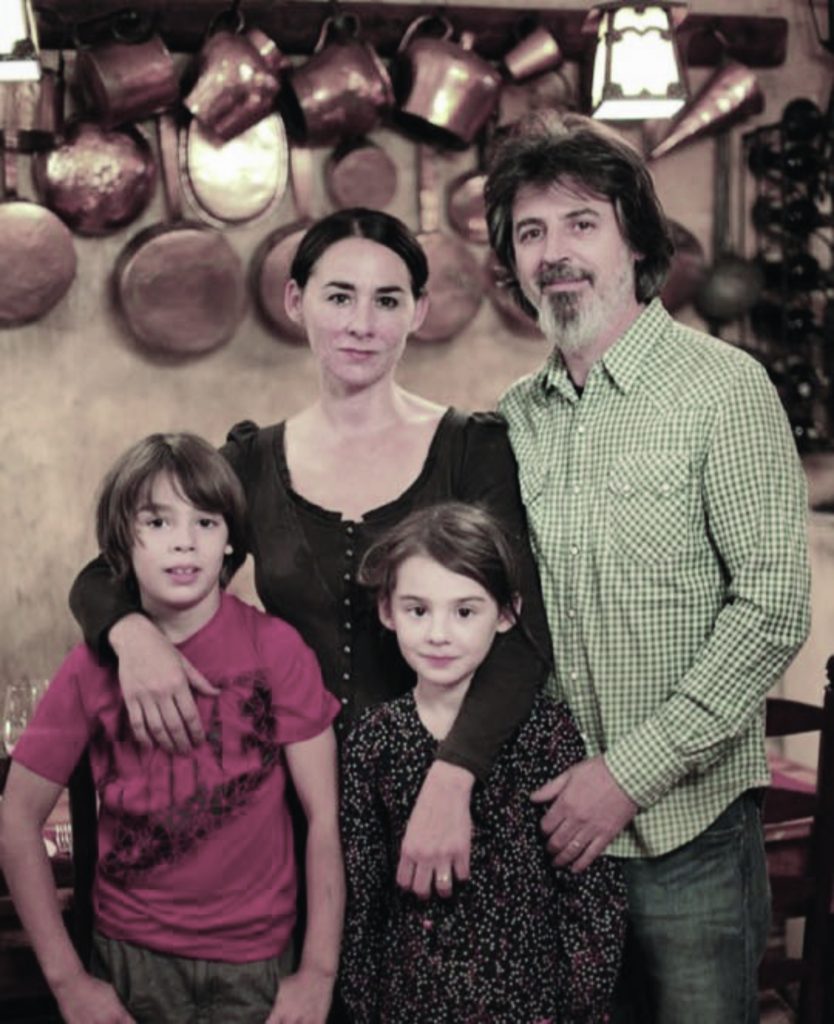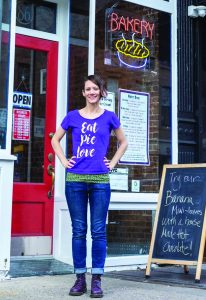
On the north end of Park Slope’s Fifth Avenue sits Miss American Pie, a relaxed and inviting escape from the speed of the city.
Packed with the sweet, nostalgic smell of fresh-baked goods, the 50s-themed bakery fosters a sense of small-town community on one of the neighborhood’s most bustling blocks.
Wednesday through Sunday of each week, owner and head baker Lindsey Hill dishes up classic desserts reminiscent of what would be served at a Fourth of July picnic or after Sunday supper. Since she opened Miss American Pie in August of 2019, Hill’s homestyle baking has turned Miss American Pie into a destination spot for local sweet-tooths. However, like many of the neighborhood’s businesses, Miss American Pie’s future is uncertain amid the COVID-19 pandemic. With high rent and limited business, staying open is a daily struggle.
Hill, who grew up about 90 miles away from Chicago, discovered her love for baking as a teenager. In her early years, most of Hill’s customers were her friends from the small private high school she attended in Northern Illinois.
“I was the homemaker,” said Hill. “I would invite people over for dinner parties when I was in high school. I started baking then, using my mom’s Betty Crocker cookbook. I made a lot of strawberry cheesecakes and stuff like that.”
In college, Hill’s love for baking grew even more. She would stay up all night and escape the world by studying cookbooks and pouring her heart into her craft.
“It became like therapy for me,” said Hill. “In the morning, I would be so excited with all of my creations. My husband, who was then my boyfriend, would come out and say, ‘Oh my gosh. Have you been up all night?’ And I’d be like, ‘Yeah, but look at this!’”
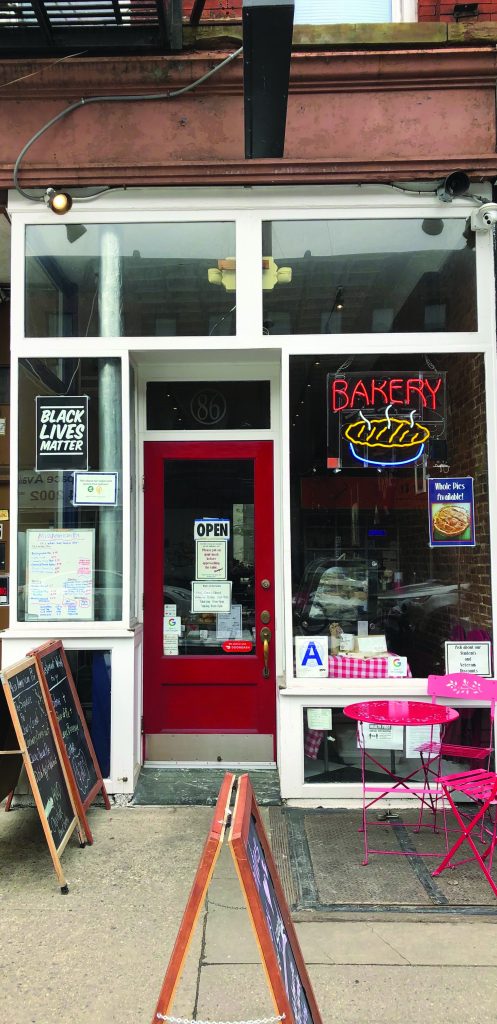
After graduating from college, Hill moved to New York to pursue a career in fashion design. Still, she didn’t give up her love for baking. While working in the fashion industry, She would often bring baked goods in for her colleagues, who, between bites, would ask her why she wasn’t selling the stuff.
“During that time is when I started developing my own recipes,” Hill said. “Baking is more of a science than an art. So, once I understood the science behind it, I began developing my own recipes.”
Eventually, Hill took her coworkers’ advice and started selling whole pies online. She rented a kitchen and was working as a part-time baker and a part-time fashion designer. Hill kept this up for a couple of years before the time came when she had to make a decision.
So Hill took a chance. Instead of keeping her high-paying job in the fashion industry, she opted to pursue something she’d loved since she was young. She opened her bakery, Miss American Pie.
“I felt a divine calling to do this,” said Hill. “I felt like God was telling me, ‘This is where you’re supposed to be. This is where love can spread through you the most to other people.’ So, that’s what I decided to do.”
Hill spent the next year figuring out the logistics behind how she could open her bakery. When looking for locations, Hill printed out a map of Brooklyn, her home for more than 15 years, and narrowed down a few potential neighborhoods.
“Park Slope wasn’t my first choice,” said Hill. “But, when I started walking around the neighborhood, I really felt a sense of diversity that I didn’t feel in other neighborhoods. I feel like the Barclay’s Center and Atlantic Terminal is this meeting point of a few different neighborhoods, demographics, and walks of life. I thought that it was the perfect place for Miss American Pie because the goal really was to spread love through pie and to be a place where people build authentic relationships around food.”
Named after the Don McLean song, the interior of Miss American Pie looks like a cross between a 50s diner and a grandma’s kitchen. The floors are painted with black and white checkers, and the walls, one of which is exposed brick, are spotted with patriotic flags, family pictures, baking utensils, and old-timey signs that list the day’s menu.
“When I was growing up, and even back in the 50s and 60s, the idea of eating a meal with your family was ingrained into American society, and I don’t see that anymore,” said Hill. “Relationships are a valuable thing that we are losing.
Every morning, Hill bakes nine “everyday pies,” including fresh apple pie, cherry crumb pie, and coconut cream pie, just to name a few. Also on the everyday menu is Hills’ Signature Pie, which is made with apples, peaches, and blueberries, sprinkled with oat crumbs, and covered with a lattice top.
“It meets everyone’s cravings,” said Hill. “If you like the oat crumb top, it has that. If you like pastry crust, it has that too. It outsells every other pie by 50 percent.”
Hill also makes more than a dozen seasonal pies. A few tasty options on the Spring menu are a strawberry rhubarb pie, key lime pie, and french silk pie, which is a flaky butter crust filled with a fluffy dark chocolate mousse and topped with sweet whipped cream.
“I think ‘classic’ is a keyword when you think about the majority of our pies,” said Hill. “They are like my children. I have a different favorite every day.”
Despite Hill’s talents and her bakery’s growing support, keeping the business afloat has never been easy. Immediately after making it past the year one growing pains that most businesses go through, Miss American Pie was hit with a global pandemic.
In March, the bakery was forced to close regular service. They were only open on Friday, Saturday, and Sunday for pre-orders. Hill soon lost the ability to support her staff, so her husband quit his job to help out at the bakery unpaid.
“The neighborhood was so supportive during that time,” said Hill. “People were coming in. Some families were ordering a whole pie every week or buying gift cards if they didn’t need any pie or were on a diet.”
But months later, the financial problems are still overwhelming. Like many of Park Slope’s business owners, Hill is taking things day-by-day.
“I would like to say we will be around, but I have no idea,” said Hill.

